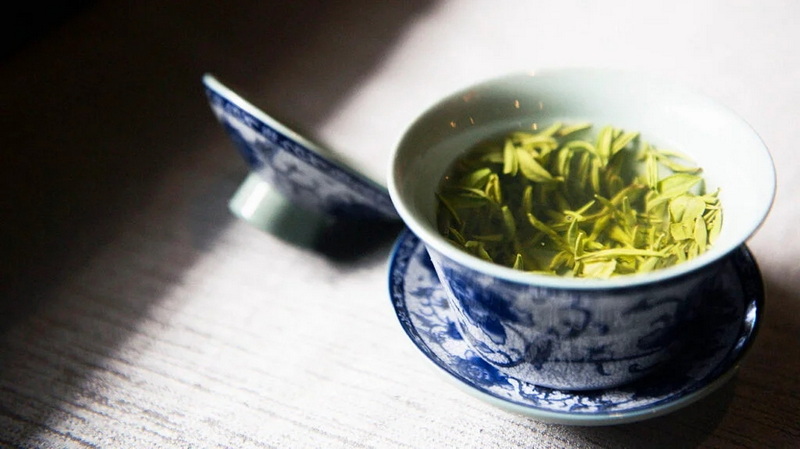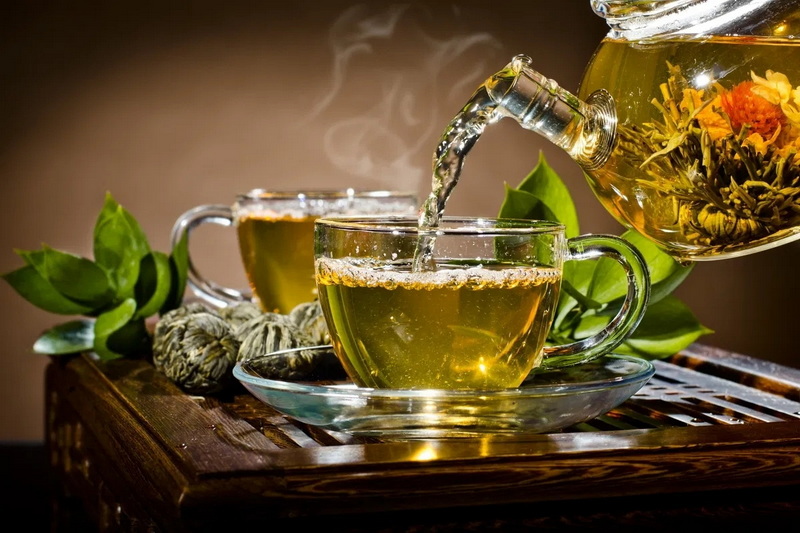Content Menu
● Introduction to Green Tea Extract
>> Key Components of Green Tea Extract
● Mechanisms Behind Green Tea Extract's Effects on Blood Pressure
● Clinical Evidence on Green Tea Extract and Blood Pressure
● Potential Risks and Considerations
● Lifestyle Modifications and Green Tea Extract
● Conclusion
● FAQ
>> 1. What are the main components of green tea extract?
>> 2. How does green tea extract affect blood pressure?
>> 3. Are there any potential risks associated with green tea extract?
>> 4. Can green tea extract interact with other medications?
>> 5. How much green tea extract should I consume daily?
● Citations:
Green tea extract has been widely studied for its potential health benefits, including its effects on cardiovascular health and blood pressure. The question of whether green tea extract raises blood pressure is important for individuals considering its use, especially those with hypertension or cardiovascular concerns. This article will delve into the current research on green tea extract and its impact on blood pressure, exploring both the mechanisms behind its effects and the evidence from clinical studies.

Introduction to Green Tea Extract
Green tea extract is derived from the leaves of the Camellia sinensis plant and is rich in catechins, particularly epigallocatechin gallate (EGCG), which is believed to be responsible for many of its health benefits. These compounds have antioxidant, anti-inflammatory, and anti-hypertensive properties, contributing to green tea's potential cardiovascular protective effects.
Key Components of Green Tea Extract
- Catechins: These are the most abundant polyphenols in green tea, with EGCG being the most active form. Catechins are known for their antioxidant activity and their role in improving cardiovascular health.
- L-Theanine: An amino acid found in green tea, L-theanine is known for its calming effects and ability to reduce stress levels, which can indirectly influence blood pressure.
Mechanisms Behind Green Tea Extract's Effects on Blood Pressure
Green tea extract's impact on blood pressure is primarily attributed to its catechins, which exert several mechanisms to potentially lower blood pressure:
1. Antioxidant Activity: Catechins can reduce oxidative stress by scavenging free radicals and enhancing the production of antioxidant enzymes. This helps protect the vascular system from damage and improves blood vessel function.
2. Vasodilation: Green tea catechins can increase the production of nitric oxide (NO) in the endothelium, leading to vasodilation and improved blood flow. This effect helps reduce blood pressure by decreasing vascular resistance.
3. Anti-inflammatory Effects: By reducing inflammation in the vascular walls, catechins may prevent the progression of atherosclerosis, a condition associated with increased blood pressure.
4. Lipid Profile Improvement: Green tea extract has been shown to lower LDL cholesterol and total cholesterol levels, which can contribute to reduced blood pressure over time.
Clinical Evidence on Green Tea Extract and Blood Pressure
Numerous studies have investigated the effects of green tea extract on blood pressure, with mixed results:
- Meta-analyses have shown that green tea consumption can significantly reduce systolic blood pressure, with some studies indicating a decrease in diastolic blood pressure as well.
- Randomized Controlled Trials (RCTs) have provided evidence that green tea supplementation can lower blood pressure in both hypertensive and healthy individuals. For instance, one meta-analysis found that green tea reduced systolic blood pressure by approximately 2 mmHg.

Potential Risks and Considerations
While green tea extract is generally well-tolerated, high doses may lead to adverse effects such as liver enzyme elevation and increased risk of kidney stones due to its oxalate content. Additionally, green tea can interact with certain medications, such as blood thinners and cholesterol-lowering drugs.
Lifestyle Modifications and Green Tea Extract
Combining green tea extract with lifestyle modifications can enhance its potential benefits on blood pressure:
- Dietary Changes: A diet rich in fruits, vegetables, and whole grains, along with reduced sodium intake, can complement the effects of green tea extract.
- Physical Activity: Regular exercise, such as walking or jogging, can further reduce blood pressure when combined with green tea supplementation.
- Stress Management: Practices like meditation or yoga can help manage stress levels, which are often linked to blood pressure fluctuations.
Conclusion
Green tea extract does not typically raise blood pressure; instead, it may help lower it due to its antioxidant, anti-inflammatory, and vasodilatory effects. However, individual responses can vary, and high doses may lead to adverse effects. As with any supplement, it is crucial to consult with a healthcare provider before adding green tea extract to your regimen, especially if you have pre-existing health conditions.

FAQ
1. What are the main components of green tea extract?
Green tea extract primarily contains catechins, with EGCG being the most active form, along with other compounds like L-theanine.
2. How does green tea extract affect blood pressure?
Green tea extract can help lower blood pressure by improving vascular function, reducing oxidative stress, and enhancing nitric oxide production.
3. Are there any potential risks associated with green tea extract?
Yes, high doses of green tea extract may lead to liver enzyme elevation and increase the risk of kidney stones. It can also interact with certain medications.
4. Can green tea extract interact with other medications?
Yes, green tea extract can interact with medications like blood thinners and cholesterol-lowering drugs. It is important to consult a healthcare provider before use.
5. How much green tea extract should I consume daily?
The optimal dose varies, but consuming the equivalent of 5-6 cups of green tea daily (approximately 200 mg of EGCG) is often recommended for cardiovascular benefits.
Citations:
[1] https://www.cebm.ox.ac.uk/research/projects/green-tea-and-blood-pressure-effects
[2] https://pmc.ncbi.nlm.nih.gov/articles/PMC2748751/
[3] https://health.clevelandclinic.org/green-tea-health-benefits
[4] https://www.nature.com/articles/srep06251
[5] https://www.health.harvard.edu/heart-health/green-tea-may-lower-heart-disease-risk
[6] https://pubmed.ncbi.nlm.nih.gov/36689359/
[7] https://pmc.ncbi.nlm.nih.gov/articles/PMC9871939/
[8] https://pmc.ncbi.nlm.nih.gov/articles/PMC7015560/






























